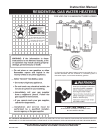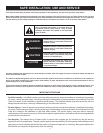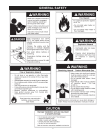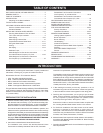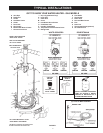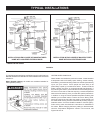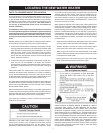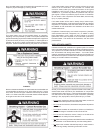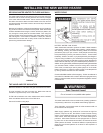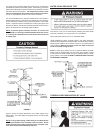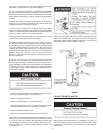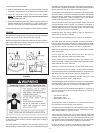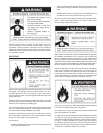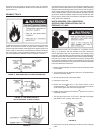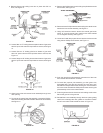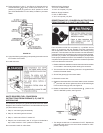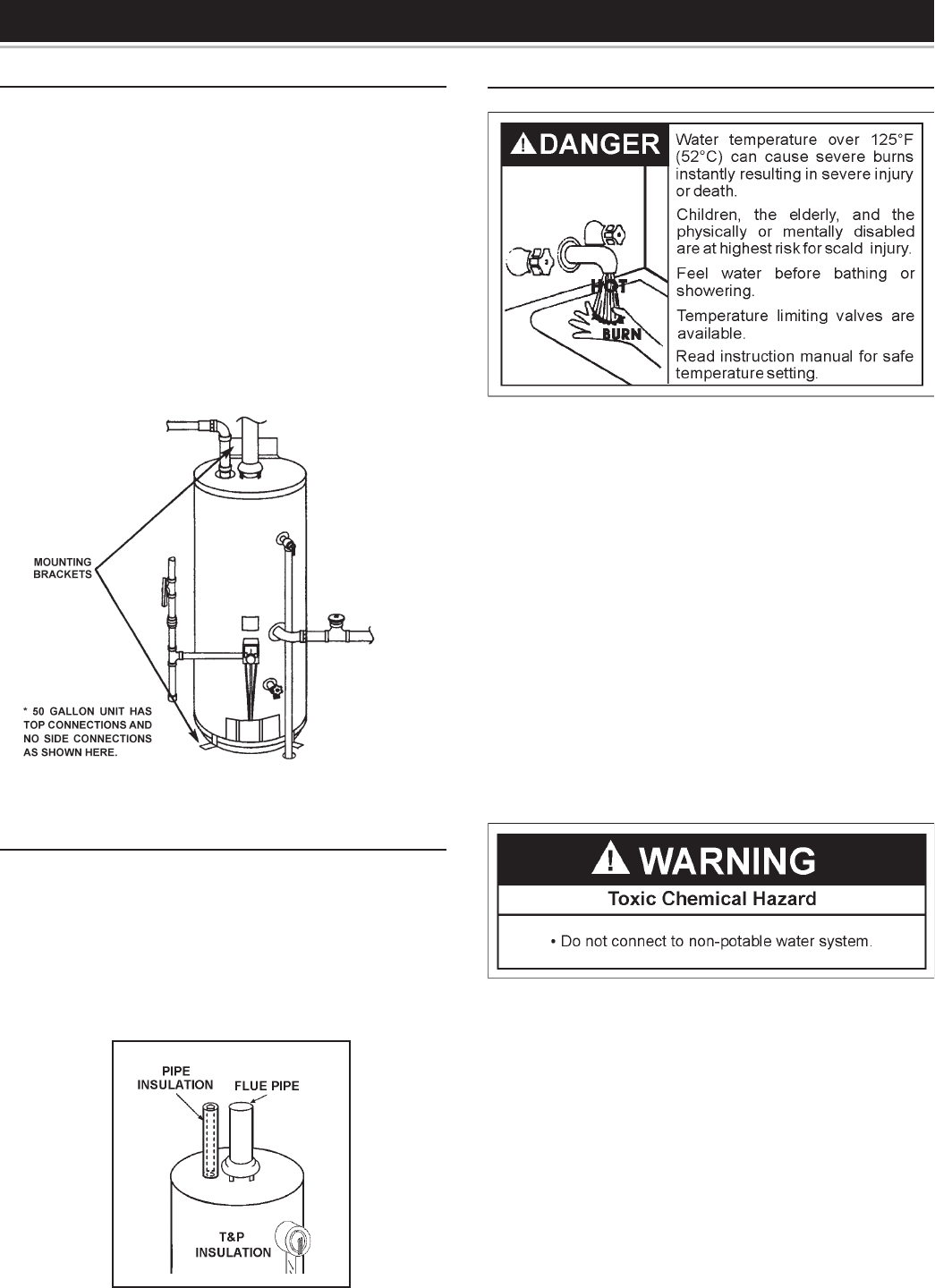
9
SECURING WATER HEATER TO FLOOR AND WALL
The water heater must be secured to the oor and to the wall of the
enclosure with the three mounting brackets and screws packaged
in the carton with the water heater. The two small brackets stamped
#0110064 are used to attach the water heater to the oor and the
one large bracket #0110063 is used to secure the top of the water
heater to the wall.
Because of installation variances these brackets can be located at
any points around the circumference of the jacket. When the bracket
locations are determined using the 1/8 inch drill bit for a pattern, drill
only through the outer jacket of the water heater. Then using the
screws provided, secure the bracket to the water heater, oor and
wall, see Figure 4. If the heater is installed in a drain pan, seal the
drilled holes and screws with a heavy bead of silicone sealant to
prevent any potential water damage.
FIGURE 4.
T&P VALVE AND PIPE INSULATION
Remove insulation for T&P Valve and pipe connections from carton.
Fit pipe insulation over the hot water line. Make sure that the
insulation is against the top cover of the heater.
Fit T&P Valve insulation over valve. Make sure that the insulation
does not interfere with the lever of the T&P valve.
Secure all insulation using tape.
WATER PIPING
HOTTER WATER CAN SCALD:
Water heaters are intended to produce hot water. Water heated to
a temperature which will satisfy space heating, clothes washing,
dish washing, cleaning and other sanitizing needs can scald and
permanently injure you upon contact. Some people are more likely
to be permanently injured by hot water than others. These include
the elderly, children, the inrm, or physically/mentally handicapped.
If anyone using hot water in your home ts into one of these groups
or if there is a local code or state law requiring a certain temperature
water at the hot water tap, then you must take special precautions. In
addition to using the lowest possible temperature setting that satises
your hot water needs, a means such as a *mixing valve, should be
used at the hot water taps used by these people or at the water
heater, see Figure 2. Valves for reducing point of use temperature
by mixing cold and hot water are also available:
Consult a Qualied Installer or Service Agency. Follow manufacturer’s
instructions for installation of the valves. Before changing the factory
setting on the thermostat, read the “Temperature Regulation” section
in this manual.
This water heater shall not be connected to any heating systems or
component(s) used with a non-potable water heating appliance.
Toxic chemicals, such as those used for boiler treatment shall not
be introduced into this system.
Water supply systems may, because of such events as high line
pressure, frequent cut-offs, the effects of water hammer among
others, have installed devices such as pressure reducing valves,
check valves, back ow preventers, etc. to control these types of
problems. When these devices are not equipped with an internal
by-pass, and no other measures are taken, the devices cause the
water system to be closed. As water is heated, it expands (thermal
expansion) and closed systems do not allow for the expansion of
heated water.
INSTALLING THE NEW WATER HEATER



